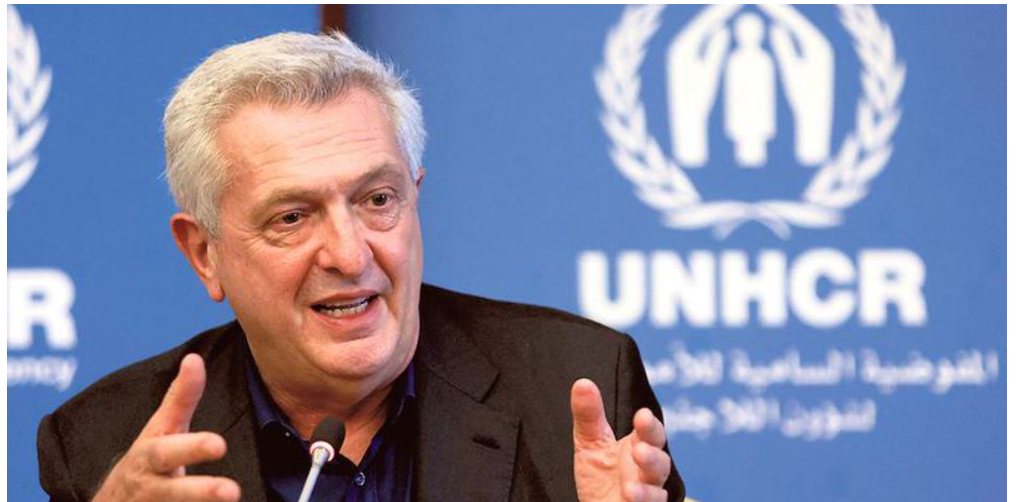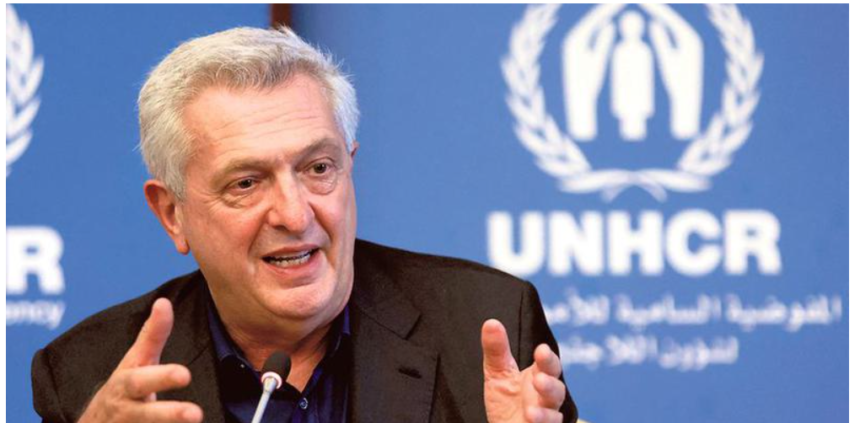The ongoing conflict in Lebanon, a country already plagued by decades of instability, has once again brought to light the devastating impact of military strikes on civilian populations. In a recent statement, a senior United Nations (UN) official accused airstrikes in Lebanon of violating international humanitarian law, raising concerns about the protection of civilians and the ethical implications of modern warfare. This 2,000-word article delves into the details of the alleged violations, examines the broader context of the conflict, and explores the humanitarian law framework designed to protect civilians during armed conflict.
Background: The Conflict in Lebanon
Lebanon has long been a flashpoint in Middle Eastern geopolitics. Located at the intersection of various regional powers, it has endured decades of foreign intervention, internal strife, and sectarian violence. The country’s history of conflict can be traced back to the Lebanese Civil War (1975–1990), which left deep scars on its society. Since then, Lebanon has witnessed numerous conflicts, often involving neighboring Israel and various non-state actors, including Hezbollah, a militant group that wields significant political and military influence in the country.
In recent years, tensions between Israel and Hezbollah have flared up again, leading to increased hostilities along the southern border. Airstrikes have become a common feature of this conflict, with both sides accusing each other of violating ceasefire agreements. However, the latest wave of airstrikes, launched by Israel in response to alleged Hezbollah attacks, has drawn international condemnation, with particular focus on the humanitarian toll.
UN Official’s Statement on Violations of Humanitarian Law
The accusation that airstrikes in Lebanon have violated international humanitarian law was made by a senior UN official, whose comments have sparked widespread debate about the conduct of hostilities and the protection of civilians in conflict zones. According to the official, the airstrikes have disproportionately affected civilian areas, resulting in high numbers of casualties, destruction of critical infrastructure, and the displacement of thousands of people.
“The airstrikes in Lebanon have targeted densely populated areas, including schools, hospitals, and residential neighborhoods,” the UN official stated. “These actions constitute a clear violation of international humanitarian law, which mandates the protection of civilians and civilian infrastructure during armed conflict.”
International humanitarian law (IHL), also known as the law of war, is a set of rules designed to limit the effects of armed conflict on people and property. Central to IHL is the principle of distinction, which requires warring parties to distinguish between combatants and civilians and to direct attacks only at military targets. The principle of proportionality further stipulates that any attack must not cause excessive harm to civilians or civilian objects in relation to the anticipated military advantage.
The Impact on Civilians
The airstrikes in Lebanon have had a devastating impact on the civilian population. According to reports from local authorities and humanitarian organizations, hundreds of civilians have been killed or injured in the attacks. Many of the victims are women, children, and elderly individuals who were unable to flee the conflict zones in time. The destruction of homes, schools, and hospitals has further exacerbated the humanitarian crisis, leaving thousands of people without access to essential services.
Displacement is another major consequence of the airstrikes. Entire communities have been forced to flee their homes in search of safety, often facing dangerous conditions as they attempt to escape the violence. The United Nations High Commissioner for Refugees (UNHCR) estimates that tens of thousands of people have been displaced within Lebanon, with many seeking refuge in overcrowded shelters or with host families in relatively safer areas of the country.
The damage to critical infrastructure, including water and electricity supplies, has also had a severe impact on civilians. Hospitals are struggling to cope with the influx of wounded patients, while a lack of clean water and sanitation facilities is increasing the risk of disease outbreaks. Humanitarian organizations have warned that the situation could deteriorate further if the conflict continues, with potentially catastrophic consequences for Lebanon’s civilian population.
Legal Implications: A Violation of International Humanitarian Law?
International humanitarian law is clear in its protections for civilians during armed conflict. The Geneva Conventions, adopted in 1949, and their Additional Protocols set out the rules that govern the conduct of hostilities, including the protection of civilians, medical personnel, and humanitarian workers. Violations of these rules are considered war crimes and can lead to prosecution by international courts, including the International Criminal Court (ICC).
One of the key principles of IHL is the prohibition of indiscriminate attacks, which are those that do not distinguish between military targets and civilians. According to the UN official’s statement, the airstrikes in Lebanon fall into this category, as they have hit civilian areas without sufficient distinction between combatants and non-combatants.
Furthermore, the principle of proportionality, which prohibits attacks that cause excessive civilian harm in relation to the military advantage gained, may have been breached. The UN official pointed out that many of the airstrikes have caused significant civilian casualties, raising questions about whether the military objectives justified such a high cost in human life.
The Role of International Organizations
International organizations, including the United Nations and the International Committee of the Red Cross (ICRC), play a crucial role in monitoring compliance with international humanitarian law and advocating for the protection of civilians during armed conflicts. In response to the airstrikes in Lebanon, these organizations have called for immediate ceasefires and have urged all parties to respect their obligations under IHL.
The UN Secretary-General has also called for an independent investigation into the alleged violations, with a view to holding those responsible accountable for their actions. However, ensuring accountability in conflict zones is often challenging, particularly when it comes to non-state actors like Hezbollah, which operates outside the framework of traditional state-based warfare.
The International Criminal Court (ICC) has the authority to investigate and prosecute individuals responsible for war crimes, crimes against humanity, and genocide. However, both Israel and Lebanon are not parties to the ICC, which limits the court’s jurisdiction in this case. Nevertheless, the possibility of referrals by the UN Security Council or other legal mechanisms remains open.
Humanitarian Response and Assistance
In the face of the ongoing conflict, humanitarian organizations have been working tirelessly to provide assistance to those affected by the airstrikes. The United Nations Office for the Coordination of Humanitarian Affairs (OCHA) has coordinated relief efforts, distributing food, water, and medical supplies to displaced populations. The World Health Organization (WHO) has also been involved in supporting local hospitals and healthcare facilities overwhelmed by the influx of wounded civilians.
Despite these efforts, the scale of the humanitarian crisis in Lebanon remains immense. Humanitarian workers have faced significant challenges in accessing conflict-affected areas due to ongoing hostilities and security concerns. The destruction of roads and bridges has further complicated the delivery of aid, while the lack of fuel and electricity has hampered efforts to maintain critical infrastructure, including hospitals and water treatment plants. 
Calls for a Ceasefire and Political Resolution
The international community has called for an immediate ceasefire to halt the violence and prevent further civilian casualties. Diplomatic efforts are underway to broker a ceasefire agreement between Israel and Hezbollah, with the involvement of regional powers such as Egypt, Qatar, and Saudi Arabia. However, achieving a lasting peace in Lebanon will require more than just a temporary halt to hostilities. A comprehensive political solution that addresses the underlying causes of the conflict, including Hezbollah’s role in Lebanese politics and its relationship with Iran, will be necessary to ensure long-term stability in the region.
The UN official’s statement on the violation of international humanitarian law by the airstrikes in Lebanon underscores the urgent need for accountability and the protection of civilians in armed conflicts. As the situation continues to unfold, the world will be watching closely to see how the international community responds to these allegations and whether meaningful steps are taken to prevent further violations of humanitarian law.
Conclusion
The airstrikes in Lebanon represent a tragic chapter in the country’s long history of conflict. As the UN official’s statement highlights, the indiscriminate nature of the attacks and the disproportionate harm caused to civilians raise serious questions about compliance with international humanitarian law. While diplomatic efforts to secure a ceasefire are underway, the international community must remain vigilant in holding all parties accountable for their actions and ensuring the protection of civilians in conflict zones.
In the broader context, the situation in Lebanon serves as a reminder of the importance of adhering to the principles of international humanitarian law, particularly in an era of increasingly complex and asymmetric warfare. The protection of civilians must remain a priority, and violations of humanitarian law must not go unpunished, if the international community is to uphold the standards of justice and humanity in times of war. ALSO READ:-Winning Was More Important Than Net Run Rate, Says Arundhati 2024





